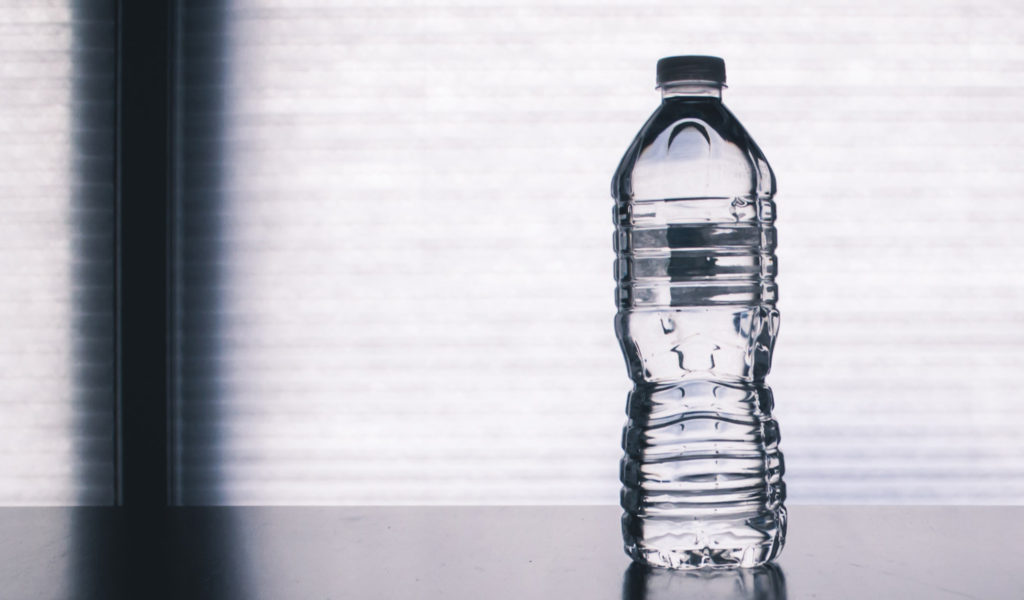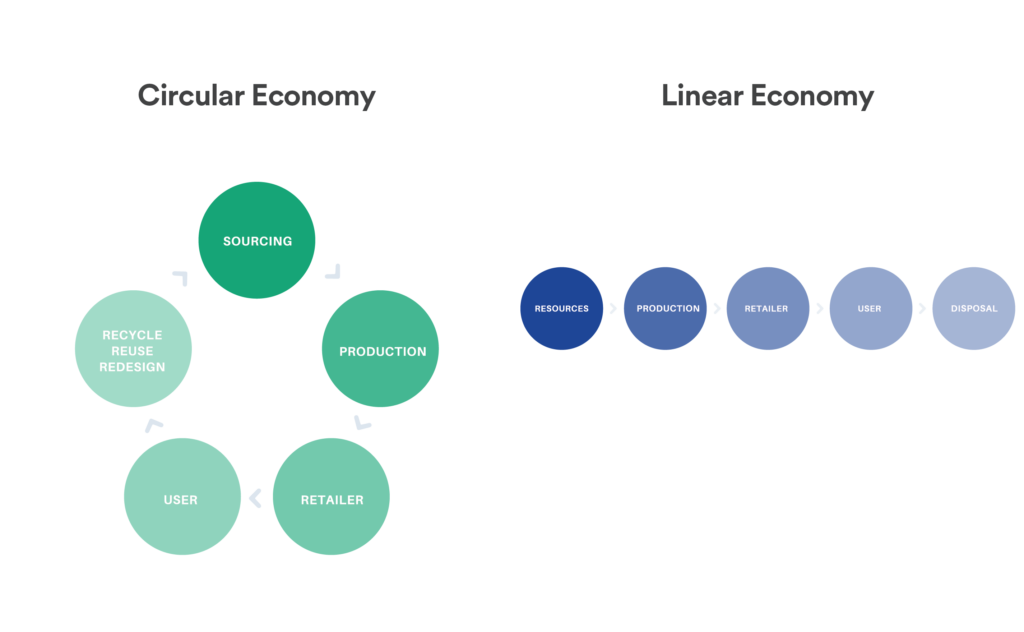Plastic Bottle Recycling Facts
Understanding where the products we buy come from, and what to do with them when we are finished, is one of the fundamental pillars of sustainability. However, as the world around us becomes increasingly interconnected and complex, undertaking meaningful environmental education becomes increasingly difficult.
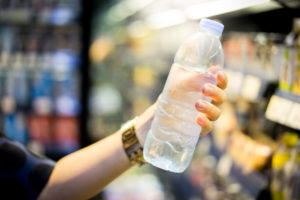 The complexity of these systems of production is exemplified perfectly by the plastic bottle, and maintaining a conscientious relationship with this particular product is seriously problematic. Plastic bottles are ubiquitous; found in grocery stores, supermarkets, homes and offices, on streets and in oceans, they have a convoluted lifecycle, and their production and eventual disposal has significant environmental impacts.
The complexity of these systems of production is exemplified perfectly by the plastic bottle, and maintaining a conscientious relationship with this particular product is seriously problematic. Plastic bottles are ubiquitous; found in grocery stores, supermarkets, homes and offices, on streets and in oceans, they have a convoluted lifecycle, and their production and eventual disposal has significant environmental impacts.
However, both businesses and consumers alike can take steps to mitigate the problems caused by plastic bottles. Effectively recycling our bottles and making bottles from recycled materials are both effective ways to do this but reducing our reliance on these single-use products is, far and away, the most important action we can take.
To do this, first we need to truly understand the scale of the problem and how existing infrastructure attempts to deal with it, as well as alternatives to this destructive and resources intensive product. So, to help you grasp some of the issues surround single-use plastic bottle use and disposal, and what the future might look like without them, here we look at a few interesting plastic bottle recycling facts.
Almost all plastic bottles can be easily recycled
Most of the plastic bottles available for retail purchase are made from PET, or polyethylene terephthalate. This is an ideal material for making single-use water bottles as it is strong, lightweight, and is a type-1 plastic, which means it can be easily recycled.
The recycling process has several stages; collecting bottles from a central location, then shredding them with other PET products, melting the shreds down, and reforming them into pellets. These pellets then act as the raw material for the production of new plastic goods, including new water bottles!
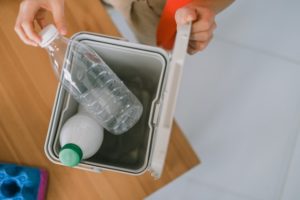 Many governments are encouraging people and businesses to recycle plastic bottles across the world
Many governments are encouraging people and businesses to recycle plastic bottles across the world
There are many benefits to recycling plastic bottles and, across the globe, governments are taking steps to encourage both business and consumers to do this. For example, there are recycling programs running in several US states, (such as California, Massachusetts and Wisconsin) which either encourage, or make mandatory, the commercial recycling of plastic bottles and other waste products.
 Recycled bottles can be found in a wide range of products
Recycled bottles can be found in a wide range of products
PET (or PETE) is the virgin plastic which water bottles are made of, however, when PET is recycled, it is known as rPET, rePET or rPETE. This recycled material is found in a wide range of products, including new water bottles, polyester carpet fiber, t-shirts, upholstery, industrial strapping and fiberfill for sleeping bags.
Not only does this use less energy and fewer resources than making those products with virgin plastic, but it also diverts bottles away from landfill, keeping resources in the loop and trash out of a hole in the ground!
Recycled bottles use 75% less energy to produce than new ones
The energy savings from recycling plastic bottles is significant, and while this doesn’t necessarily help end-of-life issues when the bottle is trashed, it does help reduce the resources used during manufacture. 75% less energy is consumed for each bottle, with some estimates suggesting that this process can create the energy savings equivalent to taking 360,000 cars off the road.
Interestingly, recycling plastic bottles also reduces water consumption, as new water bottles require six times the amount of water they contain to produce.
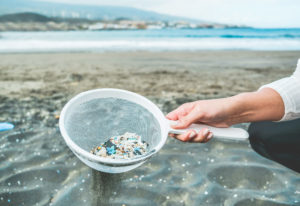 Recycling bottles helps to drastically reduce the amount of environmental litter
Recycling bottles helps to drastically reduce the amount of environmental litter
According to Plastic Oceans, 14% of all litter consists of beverage containers. Therefore, recycling plastic bottles can help to reduce the amount of litter on our streets, waterways, and oceans.
This is particularly important as plastic bottles can take between 450-1000 years to break down and cannot fully biodegrade. Instead, they break down into smaller and smaller microplastics, which act as dangerous contaminants.
Plastic bottles can’t be recycled infinitely
Whilst there are brands which are making their bottles entirely from recycled PET, individual PET bottles cannot be recycled forever. When PET is first manufactured, it contains long flexible polymer chains, which is what makes PET such a lightweight and flexible material.
However, these polymer chains are broken down during the recycling process. With broken chains, the material is no longer useful for making bottles.

Source: shop.zerowaste.com
Recycling plastic bottles is not a perfect solution
Whilst there are huge benefits to recycling our PET bottles, doing so is not a perfect solution. rPET products can lead to the leaching of microplastics into waterways, especially when items of rPET clothing and upholstery are washed at home.
This is a major concern, as plastic in our oceans is responsible for the death of an estimated 100,000 marine animals per year, and microplastics in the ocean quickly infiltrate our own food chains. This shouldn’t stop you from buying recycled clothing however, as microplastics can be caught and disposed of safely using a microplastics washing bag.
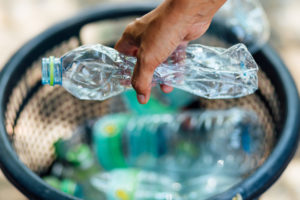 More bottles are being recycled than ever before – though we need to increase that number
More bottles are being recycled than ever before – though we need to increase that number
According to the EPA, 910,000 tons of PET bottles and jars were recycled in the US in 2018. Whilst it’s great that this much plastic has been diverted from landfill, it only represents 29.1% of PET produced that year. Clearly, it’s important that we continue to practice and advocate the recycling of plastic bottles.
Plastic bottles are facing biodegradable competition
The arrival of bioplastics on the market is raising some real interest. These bioplastics are made entirely from plants, thus reducing some of their environmental impact. Green Planet Bottling, who have recently begun to sell a range of bio-plastic bottles, say that their bio-plastic bottles use 65% less energy and fuel to produce than PET bottles. They are also compostable within 80 days.
For more information on how both individuals and businesses can improve recycling rates and optimize waste management, subscribe to the RTS blog today. Additionally, for tailored insights into your waste management practices, contact one of our LEED-accredited advisors.

